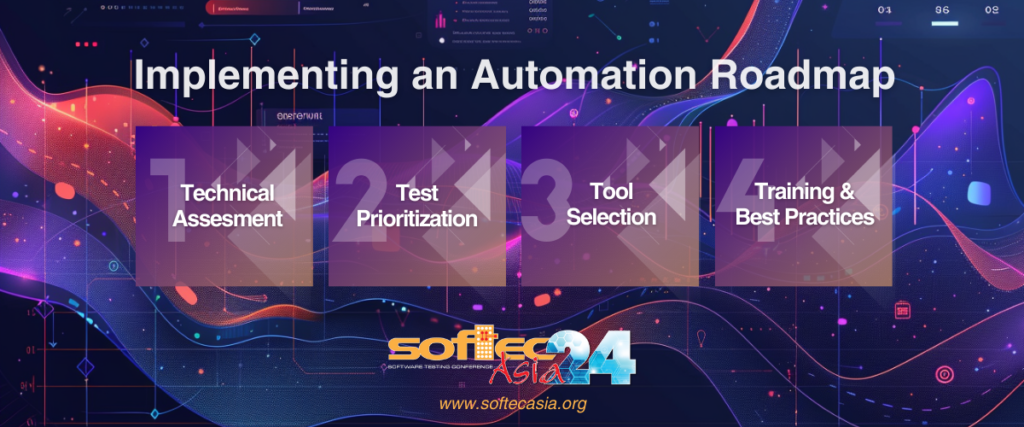In the ever-evolving field of software development, Agile methodologies have established themselves as a pivotal approach for iterative development and rapid releases. However, maintaining software quality amid rapid Agile cycles poses unique challenges. This necessitates integrating test automation into the development lifecycle, a theme central to SOFTECAsia 2024. Here are some reasons why test automation is critically important in Agile:
- Shortened Feedback Loops: Agile’s success relies heavily on prompt feedback to refine iterations. Automated tests, integrated seamlessly into the CI/CD pipeline, execute quickly and repeatedly, yielding immediate insights into code changes. This accelerates bug detection and resolution, minimizing disruptions to sprints.
- Regression Management: Agile methodologies often involve frequent updates, increasing the risk of regressions. Automated regression tests ensure new features don’t negatively impact existing functionality. By running these tests after each update, developers can confidently manage complex feature interactions. As Rob Sabourin, keynote speaker at SOFTECAsia 2024, emphasizes, “Automation skills require a blend of modeling, problem-solving, and general systems thinking”.
- Collaboration Enhancement: Test automation fosters collaboration between developers and testers by embedding quality checks throughout the development lifecycle. By designing tests alongside code, teams establish a shared understanding of requirements, leading to a more cohesive development process.
Implementing an Automation Roadmap

- Technical Assessment: Start by conducting a technical audit of current testing processes, identifying bottlenecks and evaluating the effectiveness of manual tests. This informs tool selection, strategy, and areas where automation can have the greatest impact.
- Test Prioritization: Prioritize test cases based on complexity, frequency, and manual effort required. Regression tests, cross-platform checks, and performance tests are prime candidates for automation, delivering immediate value and allowing testers to focus on exploratory testing and edge cases.
- Tool Selection: Choose automation tools that support your project’s languages and integrate seamlessly into your development pipeline. Tools like Selenium, Cypress, and Appium offer comprehensive APIs and robust ecosystems, facilitating integration into CI/CD workflows.
- Training and Best Practices: Equip your team with in-depth training on automation frameworks, design patterns, and techniques to maximize the return on your automation efforts. Encourage ongoing learning to stay updated on evolving tools and practices. Tariq King, keynote speaker at SOFTECAsia 2024, highlights that automation “requires a cross-section of knowledge, skills, and experience from areas such as mathematics, data science, software engineering, cybersecurity, and operations”.
A Hub for Automation Expertise
SOFTECAsia 2024 serves as a comprehensive platform for the in-depth exploration of test automation technologies and strategies. The conference features a series of workshops and tutorials led by industry experts who cover a broad spectrum of topics, including the design of tests, the integration of automation into Agile processes, and the utilization of new tools. Additionally, it provides ample networking opportunities, allowing attendees to engage with a diverse community of software professionals and exchange insights on automation tools, frameworks, and strategies. Participants will also gain global perspectives on how test automation is influencing software quality assurance across the world, offering a well-rounded view of current industry trends.
To explore test automation’s future and gain technical insights into emerging trends, join us at SOFTECAsia 2024. The conference is an invaluable opportunity to learn, connect, and adapt to the evolving landscape of software testing.

